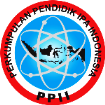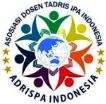Integrating Local Wisdom into Environmental Education: A Systematic Review of Ethnoscience Research in Indonesia
Abstract
The erosion of environmental awareness and the diminishing recognition of traditional knowledge present significant challenges for contemporary education, particularly in Indonesia. This literature review examines the integration of ethnoscience into science education as a strategic response to these issues. Studies conducted between 2020 and 2025 reveal a growing emphasis on embedding local wisdom—such as indigenous agricultural practices and cultural rituals—into science curricula to enhance environmental consciousness and promote sustainable behaviors. A majority of the research focused on students, with senior high school (40%) and junior high school (26.7%) populations being the primary targets. Notably, research output surged in 2024, reflecting increasing academic interest. Ethnoscience-based instructional materials, including e-modules and interactive books, were widely implemented and demonstrated effectiveness in facilitating conceptual understanding while nurturing cultural appreciation. These tools were well-received by both educators and learners. Geographically, the studies spanned diverse regions, including Papua, Surabaya, and Ponorogo, underscoring the broad applicability of ethnoscience in Indonesian education. Although fewer studies concentrated on teachers, findings suggest that incorporating traditional knowledge into science education fosters cultural preservation, environmental stewardship, and sustainable development. This approach not only enriches the curriculum but also provides learners with a meaningful, context-driven educational experience rooted in both scientific inquiry and cultural heritage..
Keywords: ethnoscience, environmental education, indonesia, systematic literature review, science learning
Full Text:
PDFReferences
Acim, D., Subagja, D. J., Afiani, D. A., Pratama, G. R., & Kautsar, F. A. (2023). Exploring cultural diversity in Indonesia: Models, responses, and multicultural politics. CANDIDATE: Jurnal Sains Politik, 1(1), 35–55. https://journal.uinsgd.ac.id/index.php/candidate/
Agustina, D. W., Rachmadiarti, F., & Kuntjoro, S. (2023). Development of environmental pollution handling flipbook based on Surabaya local wisdom to train students’ ethno-conservation. IJORER: International Journal of Recent Educational Research, 4(1), 16–30. https://doi.org/10.46245/ijorer.v4i1.268
Amin, M., & Ritonga, A. D. (2024). Diversity, local wisdom, and unique characteristics of millennials as capital for innovative learning models: Evidence from North Sumatra, Indonesia. Societies, 14(12), 260. https://doi.org/10.3390/soc14120260
Apriansyah, M. A., Syarif, St. H., Anugra, N., & Nikmatullah, M. (2024). Development of an ethnoscience based e-module on the diversity material of medicinal plants of the Bugis tribe. Biosfer: Jurnal Tadris Biologi, 15(1), 1-14. https://doi.org/10.24042/biosfer.v15i1.22412
Ardianti, S. D., Wanabuliandari, S., & Tanghal, A. B. (2023). Implementation the ethnoscience-based smart module to improve students’ patriotism. Jurnal Pendidikan IPA Indonesia, 12(2), 293–300. https://doi.org/10.15294/jpii.v12i2.43789
Ardianti, S. D., Wanabuliandari, S., Saptono, S., & Alimah, S. (2019). A needs assessment of edutainment module with ethnoscience approach oriented to the love of the country. Jurnal Pendidikan IPA Indonesia, 8(2), 153–161. https://doi.org/10.15294/jpii.v8i2.13285
Arianingrum, D., Wahyuni, S., & Rusdianto, R. (2024). Development of an ethnoscience module on the environmental pollution theme to improve community early literacy. International Journal of Social Learning (IJSL), 4(3), 387–403. https://doi.org/10.47134/ijsl.v4i3.289
Arrumi, K., Syarif, M. I., Harahap, F. D. S., & Atika, R. N. (2024). Kajian etnosains asam buaye makanan khas Melayu Siak sebagai sumber belajar IPA. Jurnal Basicedu, 8(3), 2178–2186. https://doi.org/10.31004/basicedu.v8i3.7597
Artika., Copriady, J., & Rasmiwetti. (2024). Development of PBL based e-student worksheet using an ethnoscience approach to improve students’ character values and conservation attitudes on redox material. Jurnal Penelitian Pendidikan IPA, 10(4), 1495–1505. https://doi.org/10.29303/jppipa.v10i4.6791
Budiarti, I. S., Kusdianto, K., & Megawati, M. (2024). Ethnoscience exploration of sago processing as a science learning resource for elementary school. Journal of Advanced Sciences and Mathematics Education, 4(2), 195–206. https://doi.org/10.58524/jasme.v4i2.516
Fahrozy, F. P. N., Irianto, D. M., & Kurniawan, D. T. (2022). Etnosains sebagai upaya belajar secara kontekstual dan lingkungan pada peserta didik di sekolah dasar. Edukatif: Jurnal Ilmu Pendidikan, 4(3), 4337–4345. https://doi.org/10.31004/edukatif.v4i3.2843
Fitri, L., Fadhillah, R., & Hadiarti, D. (2025). Development of ethnoscience reels of Ketapang Malay tribe as supplementary learning resources on hydrocarbon compounds. Jurnal Penelitian Pendidikan IPA, 11(2), 131–137. https://doi.org/10.29303/jppipa.v11i2.8595
Fitri, M. N., Asrizal, Amnah, R., Hidayati, Emiliannur, & Helma. (2024). Development of global warming e-module integrated with PBL model and ethnoscience to promote students’ environmental literacy. Jurnal Penelitian Pendidikan IPA, 10(11), 8276–8289. https://doi.org/10.29303/jppipa.v10i11.9059
Hikmawati, H., Suastra, I. W., & Pujani, N. M. (2020). Ethnoscience-based science learning model to develop critical thinking ability and local cultural concern for junior high school students in Lombok. Jurnal Penelitian Pendidikan IPA, 7(1), 60–66. https://doi.org/10.29303/jppipa.v7i1.530
Ismawati, R., Juliyanto, E., Prajoko, S., & Rahayuningsih, E. (2020). Instilling the conservation character through reconstruction of scientific knowledge based on local wisdom. Indonesian Journal of Science and Education, 4(1), 35-42. https://doi.org/10.31002/ijose.v4i1.1434
Jadidah, I., Alfarizi, M., Liza, L., Sapitri, W., & Khairunnisa, N. (2023). Analisis dampak arus globalisasi terhadap budaya lokal (Indonesia). Academy of Social Science and Global Citizenship Journal, 3(2), 40–47. https://doi.org/10.47200/aossagcj.v3i2.2136
Jihannita, J., Fadly, W., Ekapti, R. F., Luthfiana, D., & Widowati, A. (2024). The development of science module integrated with ethnoscience of Singo Barong mask to improve scientific literacy and cultural preservation attitudes. Journal of Innovation in Educational and Cultural Research, 5(2), 356–363. https://doi.org/10.46843/jiecr.v5i2.790
Kizilaslan, A., Sozbilir, M., & Yasar, M. D. (2012). Inquiry based teaching in Turkey: A content analysis of research reports. International Journal of Environmental & Science Education, 7(4), 599–617.
Lestari, N., Paidi, & Suyanto, S. (2024). A systematic literature review about local wisdom and sustainability: Contribution and recommendation to science education. EURASIA Journal of Mathematics, Science and Technology Education, 20(2), 1-19. https://doi.org/10.29333/ejmste/14152
Muliadi, A., Wazni, M. K., Suhirman, S., & Kusuma, D. W. C. W. (2024). Effectiveness of ethnoscience learning based on Sasaknese traditional games: Preservice teacher’s perception. Jurnal Penelitian Pendidikan IPA, 10(9), 7200–7208. https://doi.org/10.29303/jppipa.v10i9.10298
Munawaroh, Z., Sari, P. K., Pambudi, B. S., & Ekapti, R. F. (2022). Development of the Etintec Student Book (Ethnoscience-based Interactive Teaching Student Book) as an interactive learning media based on the typical Ponorogo culture on ecology and biodiversity materials. Insecta: Integrative Science Education and Teaching Activity Journal, 3(2), 158–167.
Murwitaningsih, S., & Maesaroh, M. (2023). Ethnoscience in Indonesia and its implication to environmental education: A systematic literature review. Jurnal Penelitian Pendidikan IPA, 9(10), 903–911. https://doi.org/10.29303/jppipa.v9i10.5447
Nabilah, W., Sudibyo, E., & Aulia, V. (2022). Foster student’s science literacy skills on environmental pollution topics through the ethnoscience approach. Jurnal Pijar Mipa, 17(3), 387–393. https://doi.org/10.29303/jpm.v17i3.3506
Nada, I. K., Fawaida, U., Hikmah, S., Aisah, S., & Mua’azah, L. U. (2025). Ethnoscience study of the process of making adem powder as a science learning resource in junior high school. Bio-Lectura: Jurnal Pendidikan Biologi, 12(1), 73–82. https://journal.unilak.ac.id/index.php/BLE
Naila, I., Kusumajanti, W., & Anggraini, A. E. (2024). Ethnoscience and web-based learning media to maintain cultural awareness in science classroom: An exploratory sequential study. EduHumaniora | Jurnal Pendidikan Dasar Kampus Cibiru, 16(2), 199–212. https://doi.org/10.17509/eh.v16i2.70749
Parmin, P., & Fibriana, F. (2019). Prospective teachers’ scientific literacy through ethnoscience learning integrated with the indigenous knowledge of people in the frontier, outermost, and least developed regions. Jurnal Penelitian dan Pembelajaran IPA, 5(2), 142-154. https://doi.org/10.30870/jppi.v5i2.6257
Pratiwi, O. W., Rohman, F., & Firdaus, R. (2024). Unveiling the needs for ethnoscience-based e-worksheets to enhance nature of science and environmental awareness of elementary school students. Indonesian Journal of Science and Mathematics Education, 07(1), 118-136. https://doi.org/10.24042/ijsme.v5i1.21099
Puspita, G. N., Widodo, A., Sriyati, S., & Samsudin, A. (2024). The integration of ESD and ethnoscience to Merdeka Curriculum: Study on junior high school. IJIS Edu: Indonesian Journal of Integrated Science Education, 6(2), 2024–2061. https://doi.org/10.29300/ijisedu.v6i2.3544
Putri, C. R., Abdurrahman, A., & Herlina, K. (2025). Integrating seaweed ethnoscience with STEM-PjBL in renewable energy learning: Could this approach develop creativity and entrepreneurial skills? Journal of Innovation in Educational and Cultural Research, 6(2), 396-408. https://doi.org/10.46843/jiecr.v6i2.2230
Rafidah, H. N., Rachmadiarti, F., & Prastiwi, M. S. (2024). Stepping together with nature of Malang Raya: The development of environmental changes e-book based on problem-based learning (PBL). Jurnal Penelitian Pendidikan IPA, 10(7), 3556–3568. https://doi.org/10.29303/jppipa.v10i7.7377
Rahmadana, A., Sriyati, S., & Liliawati, W. (2025). The potential of materials constructing traditional houses of the Honai Dani tribe of Papua as a source for learning biochemistry with an ethnoscience approach. Journal of Tropical Chemistry Research and Education, 7(1), 1-9. https://doi.org/10.14421/jtcre.2025.71-01
Rahmawati, F., & Widianto Atmojo, R. I. (2021). Etnosains pasar terapung Kalimantan Selatan dalam materi ilmu pengetahuan alam (IPA) di sekolah dasar. Jurnal Pendidikan Dasar, 5(6), 6280–6287.
Safitri, A. N., Harijanto, A., & Wahyuni, S. (2018). Pengembangan LKS IPA berbasis kearifan lokal kopi pada pokok bahasan usaha dan energi di SMP. Jurnal Pembelajaran Fisika, 7(1), 70-77. https://doi.org/10.19184/jpf.v7i1.7227
Sari, H. D., Sriyati, S., & Purwianingsih, W. (2025). Biology learning meets local wisdom: Exploring the ethnopedagogical value of Bengkulu's fermented culinary tradition "Lemea" for biology topics. Journal of Innovation in Educational and Cultural Research, 6(2), 396–408. https://doi.org/10.46843/jiecr.v6i2.2230
Solheri, S., Azhar, M., & Yohandri, Y. (2022). Analysis of ethnoscience integrated environmental literacy for junior high school. Jurnal Pendidikan Biologi Indonesia, 8(2), 178–188. https://doi.org/10.22219/jpbi.vxiy
Sturtevant, W. C. (2019). Studies in ethnoscience. Psychology Library Editions: Personality, 2, 39–59. https://doi.org/10.1525/aa.1964.66.3.02a00850
Sudarmin., Prasetya, A. T., Kusuma, A. H., Setiawan, B., Pujiastuti, R. S. E., Mohd Zain, H. H. B., & Winarto. (2024). How to increase students' global diversity character: Study of the influence of Ethno-STEM-integrated project learning model on Indonesian tea aroma volatile compounds. Pakistan Journal of Life and Social Sciences, 22(1), 4707–4722. https://doi.org/10.57239/PJLSS-2024-22.1.00347
Wallace, M., & Wray, A. (2020). Critical reading and writing for postgraduates. SAGE Publications.
Winarto, W., Kristyaningrum, D. H., Pamungkas, A., & Wulandari, P. (2023). Ethnosains of the Javanese community "The body funeral process" as a resource of basic science learning. Jurnal Penelitian Pendidikan IPA, 9(10), 8601–8609. https://doi.org/10.29303/jppipa.v9i10.4959
Xiao, Y., & Watson, M. (2019). Guidance on conducting a systematic literature review. Journal of Planning Education and Research, 39, 93–112. https://doi.org/10.1177/0739456X17723971
Yasir, M., Hartiningsih, T., Auliya Rahma, A., Raya Telang BOX, J. P., & Java, E. (2024). The influence of local wisdom-based science learning on the cultural heritage conservation character. Raden Journal of Education, 4(2), 1418-1434. https://doi.org/10.22219/raden.v4i2.3
Yuliarta, S. R., Masruhim, M. A., Hardoko, A., Candra, K. P., Sukartiningsih, Daru, T. P., Massawet, E. T., Masitah, & Hudiyono, Y. (2024). The development of an ethnoscience-based mangrove module in improving student’s critical thinking abilities and concern for the environment at SMA IT Daarul Hikmah Bontang. Jurnal Penelitian Pendidikan IPA, 10(7), 3739–3750. https://doi.org/10.29303/jppipa.v10i7.7456
Yusof, N., Yaqin, L. N., Aliudin, P. M. R. P., & Mahali, S. N. (2024). The integration of ethnoscience and technology: A review. International Journal of Ethnoscience and Technology in Education, 1(2), 131-154. https://doi.org/10.33394/ijete.v1i2.11334
Zidny, R., & Eilks, I. (2022). Learning about pesticide use adapted from ethnoscience as a contribution to green and sustainable chemistry education. Education Sciences, 12(4), 1-16. https://doi.org/10.3390/educsci12040227
DOI: http://dx.doi.org/10.24014/jnsi.v8i1.35762
Refbacks
- There are currently no refbacks.

Journal of Natural Science and Integration
E-ISSN: 2620-5092 P-ISSN: 2620-4967
Published By:
Department of Science Education, Faculty of Education and Teacher Training,
State Islamic University of Sultan Syarif Kasim Riau, Indonesia
Mailing Address:
Jl. H.R Soebrantas Km. 15 No. 155
Kelurahan Simpang Baru
Kecamatan Tuah Madani, Pekanbaru, Riau, Indonesia
Email: jnsi.tadrisipa@uin-suska.ac.id
Indexed By:
Journal of Natural Science and Integration is licensed under a Creative Commons Attribution 4.0 International License.


_-_Copyy2.png)






.jpg)
.png)
.jpg)
.jpg)




